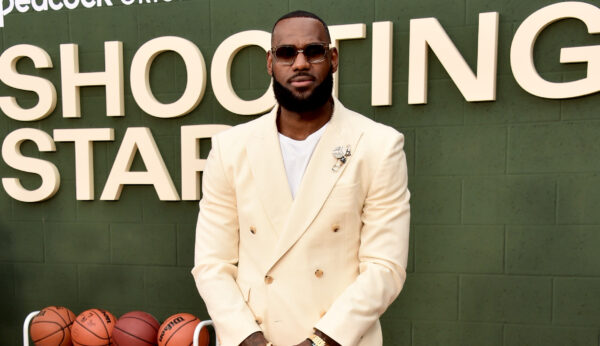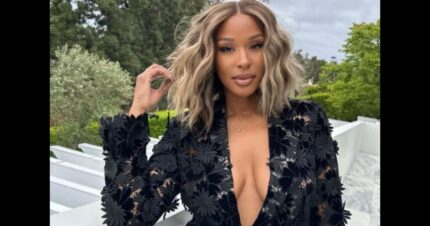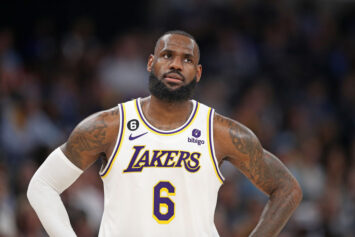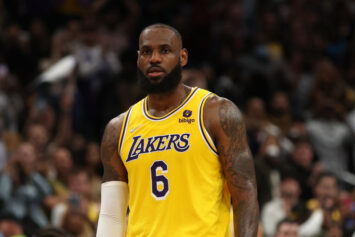In a revealing tale resurfacing on social media, the reasons behind NBA All-Star and serial entrepreneur LeBron James’ decision to pass up one of the most significant business opportunities of his career have come to light.

A 2019 book by Brian Windhorst is a study on the business acumen of James, and offers some surprising insight. It, for example, the ESPN NBA reporter records a story about how hip-hop taught the basketball champion a valuable lesson early in his career. There is a difference between endorsement and partnership.
In “LeBron James Inc.: The Making of a Billion-Dollar Athlete,” the athlete is noted to have missed a power play by not understanding that nuance and perhaps undervaluing his stock.
The Missed Vitamin Water Opportunity
Windhorst shared that in the early years of his basketball career, James was being approached by many brands seeking their endorsement. One of these brands was Vitamin Water/Glacéau. In those days, the independent start-up did not seem to be a glamorous shop to get tied into and so the coveted athlete passed.
The company still sought to have a big name signed to the drink, and after spotting their product placed in a music video with 50 Cent, the artist’s then-manager Chris Lighty parlayed the deal.
“A few months after LeBron passed, Glacéau did a major endorsement contract with the rapper Curtis Jackson, better known as 50 Cent. The company noticed Jackson drinking one of their products in a music video, and it spurred the relationship,” the author wrote.
However, he did not execute only an endorsement deal but facilitated an equity partnership for “Get Rich or Die Tryin’” recording artist that gave him his own specially created drink, Formula 50 in 2004.
Windhorst claims this was the same deal offered to James.
The Money Windfall James Missed Out On
In 2007, Coca-Cola would acquire the brand for over $4 billion, leaving the Queens native with a windfall of $100,000,000 by selling his shares. 50 Cent, the rapper who once rapped about robbing all of the biggest stars in the industry for a come-up, was now rich.
James, who was then in his early 20s and eventually starred in an ad for Vitamin Water in 2005, paid attention to this, according to Windhorst.
The author says there were several dynamics at play, one was that 50 Cent had an advantage over the young Akron superstar.
“It’s worth pointing out that 50 Cent was in a different position from LeBron. Coke and Pepsi weren’t coming after him, trying to sign him. He wasn’t turning down millions to gamble on a little engine that could,” he wrote.
Adding, “But his willingness to attach his name to the brand ended up creating an incredible payday.”
From this the author said, James, who now has a net worth of $1 billion according to Forbes, received a valuable “learning experience.”
“At the time, as a teenager, LeBron enjoyed the idea of being paid millions to be the voice of something,” he wrote. “What happened with Vitamin Water and 50 Cent would have been an interesting case study for LeBron even if the company hadn’t approached him with an offer. It was a lesson about the difference between being an employee and being an owner in a brand.”
He continued, “It showed that taking a calculated risk on a young company could pay off, especially if that company was so desperate to attach itself to LeBron’s brand power that it was willing to give up potentially valuable ownership shares.”
Despite the hard lesson learned, this has not diminished the baller’s love for the rapper. In 2022, in an exclusive VIP skybox, James was seen partying his heart out as 50 Cent performed his classic hit “In The Club” during the Super Bowl halftime show.
There should be no violins playing for James.
He eventually signed a deal with Coca-Cola and over 17 years, it is estimated that he has made about $14 million, the Sports Rush reports.
Also, he too is really rich with a business portfolio also includes a lifetime partnership with concrete profit-sharing clauses with Nike, a multi-media empire, investments in various startups, food and beverages companies, dealerships, and as a part owner of the Fenway Sports Group, he has stakes in franchises like the Boston Red Sox baseball team and the Liverpool Football Club.





WOW just what I was looking for. Came here by searching for Hobicode –
jasa pembuatan website
magnificent points altogether, you simply received a emblem new reader.
What might you suggest in regards to your submit that
you simply made a few days in the past? Any sure?
Amazing issues here. I’m very glad to peer your post.
Thanks a lot and I’m looking ahead to touch you.
Will you kindly drop me a mail?
Superb, what a web site it is! This webpage gives useful facts to us, keep it up.
It’s remarkable designed for me to have a site,
which is good designed for my knowledge. thanks admin
I go to see everyday some sites and websites to read articles or reviews, but this web site gives feature based posts.
It’s nearly impossible to find well-informed people about this topic, but you seem
like you know what you’re talking about! Thanks
Why users still make use of to read news papers when in this technological globe the whole thing is
available on net?
whoah this blog is excellent i really like studying your
articles. Stay up the great work! You already know, lots of people are
looking round for this info, you could help them greatly.
Appreciating the time and energy you put into your site and in depth information you offer.
It’s nice to come across a blog every once in a while that isn’t the same outdated rehashed material.
Great read! I’ve bookmarked your site and I’m adding your RSS feeds to my Google account.
I have been exploring for a little bit for any high
quality articles or weblog posts in this sort of house .
Exploring in Yahoo I at last stumbled upon this website. Studying
this info So i am happy to show that I’ve an incredibly excellent uncanny feeling
I discovered exactly what I needed. I most surely will make certain to do not fail to
remember this website and provides it a look regularly.
Today, while I was at work, my cousin stole my
iphone and tested to see if it can survive a 25 foot drop, just so she can be
a youtube sensation. My iPad is now destroyed and
she has 83 views. I know this is completely off topic but I had to share it with someone!
Top Real Money Casino Australia Real Feel Million Winner Now
纽卡斯尔6-1大胜卡拉巴赫2026欧冠附加赛首回合比分,戈登半场大四喜喜鹊锁定淘汰赛,最新足球赛事比分全球关注英超欧战强势表现。